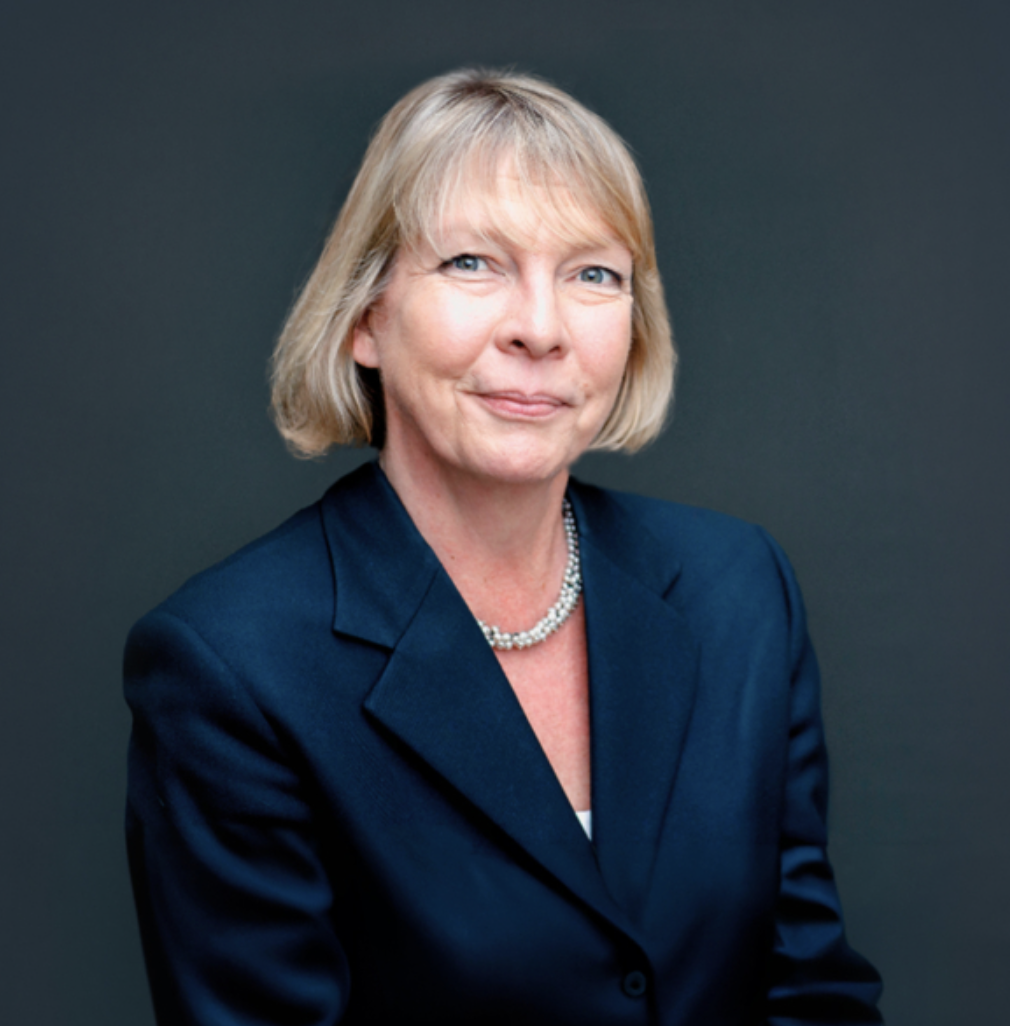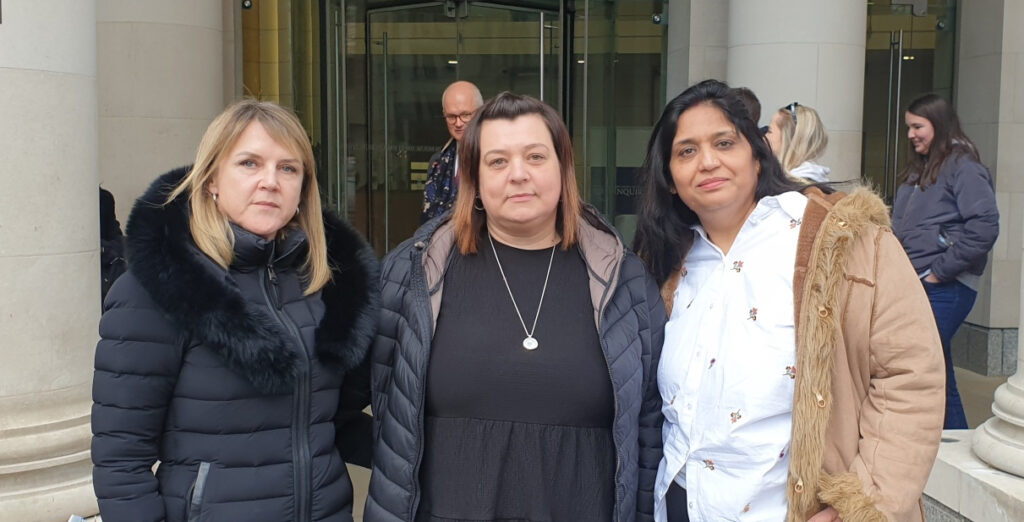
Lisa Busch KC, one of the most significant unsung heroes in the Post Office scandal, has died after a short illness.
Busch represented former Subpostmasters Seema Misra, Janet Skinner and Tracy Felstead at the Court of Appeal Hamilton hearings in 2021 after the barrister Paul Marshall and his junior Flora Page were forced to stand down.
It was Busch’s advocacy, using arguments grounded in Marshall and Page’s work, which persuaded the Court of Appeal that the Post Office perpetrated a Category 2 abuse of process in its prosecution of innocent people. I watched Ms Busch make her arguments in court during the Hamilton hearings. She was both skilful and compassionate.
Today Paul Marshall paid tribute to his colleague, saying: “All the victims of the Post Office owe Lisa Busch KC a very considerable debt of gratitude, both for her legal skill and her ability to take over (with about a week’s notice) quite complex issues that lay outside her usual area of practice, and for her courage and independence of mind. She acted in the finest traditions of the Bar.”
Janet Skinner said: “Lisa has helped change our lives forever, and I can never forget that.” Seema Misra said Lisa had “deserved more credit, but she didn’t get much” describing her as “an angel.”
In 2021, Busch described how she took on the job of representing Seema, Tracy and Janet:
“My senior clerk called me at six o’clock on a Friday evening and he said, ‘Paul Marshall’s got this Post Office case. He can’t do it so you’re doing it.’ And so I said ‘Okay.’ And that was that!”
Despite knowing next to nothing about the Post Office scandal, Busch got to work. Her secret weapon was her legal specialism, which covers public and constitutional law.
“The crucial point about this case was that it wasn’t really a criminal law case. It was a constitutional law case, because all this stuff about Category 1 and Category 2 abuse of process is very much about constitutional law principles. And that’s why I agreed to take it on.”

Not that she didn’t have second thoughts.
“I was worried, because I think you can end up getting distracted by silly things,” she said. “My main concern was that I knew nothing about criminal procedure. I knew nothing about where I was supposed to be standing in court for heaven’s sake, but that wasn’t enough to stop me from doing it.”
Busch assembled two juniors from her chambers, Olivia Davies and Dr Sam Fowles (the latter’s PhD helpfully being in constitutional law). Together they began getting up to speed.
“I read through all of Paul’s submissions and I just took what I thought were the gems and pretty much discarded the rest. I thought that if I am going to win this at the first stage… then I’ve got to present it in as simple and clear a way as I possibly can.”
It wasn’t an ideal situation, but bringing a fresh pair of eyes – or three fresh pairs of eyes – to the material helped.
“The defining feature of public law is that it’s conceptual,” said Busch, “so we were used to working in situations where there’s no real dispute about facts and evidence. The other criminal lawyers were much more forensic and focused on the minutiae. But my approach was – we’ve already got masses of evidence in the form of the findings of Mr Justice Fraser. The only question was – do these findings which substantiate a Category 1 abuse also lend themselves to a finding on Category 2 abuse? Everything else can just go.”
Busch “didn’t sleep for a few days” whilst poring over the Bates v Post Office judgments and the CCRC Statement of Reasons, before drafting the best skeleton argument she could.
“I tried to not get emotionally involved,” she said, “but when I was reading through the judgments… it was jaw-dropping stuff, but I couldn’t allow myself to dwell on that, for obvious reasons.”
“The most difficult case I have done in my life”
It takes a certain bravery to get on top of complex legal arguments from a standing start three working days before a Court of Appeal hearing. Especially as Busch’s enthusiasm for pursuing a Category 2 Abuse argument (a course of direction set by Page and Marshall) was resisted by other Subpostmaster representatives, who were experts in criminal law.
“At the time,” said Marshall “none of the other appellants or their lawyers wanted to pursue ‘second category abuse’ as a discrete ground of appeal and thought we were wrong to persist in it.”
Busch’s arguments won the day. She later described it as “the most difficult case I have ever done in my life”.
Seema Misra of Lisa “We were lost when Paul and Flora had to step down. Her arguments and the way she presented them in court helped us win. It’s really, really, really sad. We owe her a lot as a whole family. She’s gone too early.”
According to Paul Marshall, the Court of Appeal’s Category 2 finding “made it all but inevitable that Sir Wyn Williams’s informal inquiry would be made a full statutory Inquiry, as happened from May 2021. Without the finding on second category abuse (immediately following which Paula Vennells resigned her directorial and ecclesiastical appointments) the existing compensations arrangements, however unsatisfactory they may be, would never have been introduced. The importance of the issue of ‘the Second Ground of appeal’ is dramatically portrayed at the end of the ITV series, Mr Bates vs the Post Office.”
Lord Arbuthnot, whose campaigning before and after the Hamilton appeals eventually resulted in more than 900 Subpostmasters having their convictions being quashed, paid this tribute:
“Lisa took on the nearly impossible task of standing in for Paul Marshall half way through the case. The Court of Appeal (at Brian Altman’s behest) seemed dead set against Paul’s position, even though Paul had single-handedly uncovered the Clarke advice – a document that seemed hardly to trouble the Court of Appeal at all. Having taken the case on, she pursued the second ground in the teeth of opposition from her colleagues representing other Subpostmasters, and won, with far-reaching consequences. What a woman. What a loss.”
In 2023, Lisa emailed me. She had read my book on the scandal and wanted to critique it. Lisa correctly read the chapter about her first, then started from the beginning. She told me “When you interviewed me about the case, I said, rightly, I had to emotionally distance myself from it. Well, when I read your chapter on Tracy Felstead I was in tears, and your chapters on Noel – I had to go to the bathroom and throw up. Not so emotionally distanced now’.”
We stayed in touch. On 1 January this year, Lisa admitted she was “beside excited” about watching the ITV drama, and afterwards wrote to tell me it was “heartbreakingly sad” and that the “cast and production team have done a wonderful job.”
Lisa was born in the USA and educated in Australia. According to her chambers, Cornerstone Barristers, Lisa completed a BA in philosophy from the University of Western Australia. Receiving a scholarship, she completed a BPhil and Master of Studies at Oxford University. Lisa “retained an abiding interest in philosophy throughout her career: once engaged on the topic, there was really no stopping her. She then decided to move into the law. Quite what sparked her curiosity in the law, she was – she said – not quite sure. But whatever it was, it drove her to finance herself through further education and bar school, topping things up with scholarships, bursaries and prizes along the way.”
Lisa Busch leaves behind her partner David, and her mother, sister and brother.

Leave a Reply